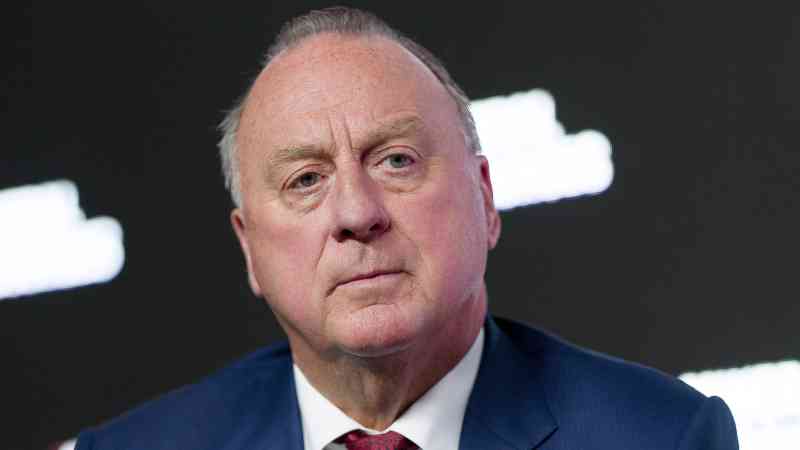An Australian mining boss who has railed against home working has said he wants to hold his staff “captive all day long’” and to stop them “walking down the road for a cup of coffee”.
Chris Ellison, the chief executive and founder of Mineral Resources, a mining services business worth about £4 billion, said he did not want the company’s staff “leaving the building”.
“We kind of figured out a few years ago how much that costs, wandering out around lunch time,” Ellison said during Mineral Resources’ annual results presentation.
Ellison, one of Australia’s richest men, said that the company was investing in facilities and benefits at its head office in Perth, Western Australia, to keep workers onsite. “Why have I done all that? Because when I get them up in the morning, I want to hold them captive all day long. I don’t want to be leaving the building and we do that. So, I don’t want them walking down the road for a cup of coffee.
“We’ve got a restaurant in there. We’ve also got a gym and we’ve got other facilities that keeps them glued in there.”
Mineral Resources was said to have banned working from home last year. Ellison pleaded with other employers to follow his lead. “I wish everyone else would get onboard with that, the sooner the better,” he said. “We can’t have people working three days a week and picking up five days’ a week pay.”
Other bosses including Jamie Dimon, the veteran chief executive of JP Morgan, and David Solomon, the chief executive of Goldman Sachs, have been critical of home working.
Working from home for at least part of the week remains common among white-collar workers in Australia. In Britain, there has been a widespread “acceptance of hybrid working” between home and the office, according to CBRE, the property services and investment firm, which measures office utilisation.
In research published last month, the CBRE said employers were having some success with efforts to encourage staff back to the office, with more companies reporting greater building utilisation. It said that the proportion of employees going to the office on three or more days a week had risen to 43 per cent, compared with 37 per cent in 2023, but “the challenge remains of matching employers’ expectations with that of their employees over the long term”.
Ellison, 67, who grew up in a poor family in rural New Zealand, founded Mineral Resources in 2006 and is worth $1.2 billion, according to an estimate by Forbes.
He added that the company was investing in childcare facilities to make it easier for parents to return to the office and would provide care at a much lower cost for staff than open market prices.
He said of his company’s nursery: “I found out one of the key things for our women, in particular, was that they spend about A$180 (£93) a day on day care. It’ll take 105 kids and it’ll cost them about A$20 a day. So another reason for them to come and enjoy work, drop the little tikes off next door. We’ve got doctors on board and nurses. We’re going to feed them, but mum and dad will be working in our office.”
The company’s share price fell by 8 per cent on the back of falling profits and the cancellation of its dividend. It has a market value of about A$8 billion.
